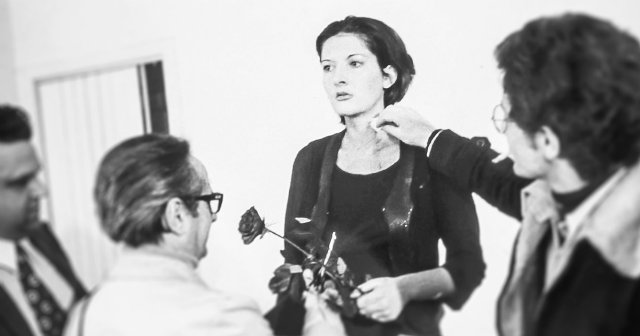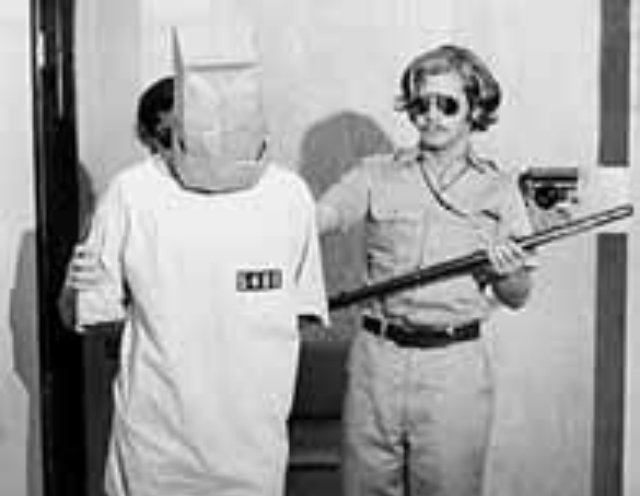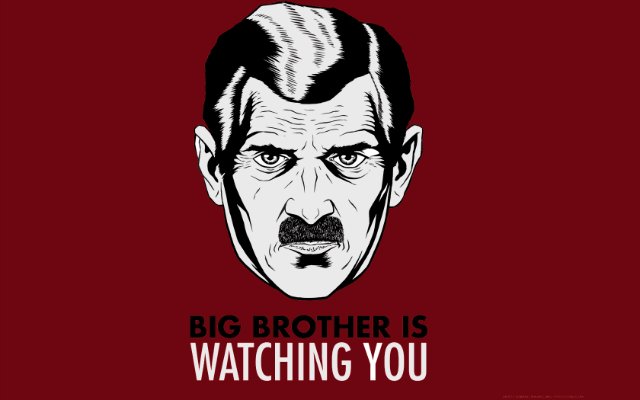What Would Happen If We Cancelled All Laws? - My 100th Post! Woohoo!

Imagine a world where all laws were instantly cancelled, with absolutely no penalties for anything from smoking weed, to committing murder. What do you think would happen; chaos, or calm?
This mini series will explore the very nature of the laws that govern us; how they have changed, and whether we need them, and how they will change in the face of a growing society, and changing technology.
The Evolution Of Law
The further we go back in human history, the more strange laws we find, that today seem ridiculous, either making us laugh, or recoil in horror.
Sometimes these laws are forgotten about as we progress along our onward journey of societal evolution. At other times, they are repealed, or amended, driven by society's need to improve.
Indeed laws, can in some way be said to be a reflection of the wants and desires of society at large. For example, there is a law in England, which as far as I'm aware, is hardly, if ever at all enforced. The law states that it is illegal to activate your burglar alarm without first nominating a ‘Key-Holder’ who can switch it off in your absence.
Then of course, we have base laws that represent human feeling the world over; for instance, I know of no nation in the world today, whereby murder is legal. Rape is another one, however depending on where you go in the world, will depend on exactly what is considered murder or rape.
So if we're all agreed, that things like murder and rape are wrong; do we actually need a law against them?
Murder Is Murder
The Code of Ur-Nammu, are the oldest known laws ever discovered, they originated from the ancient Sumerian city of Nipur, and are today held in the Istanbul archaeological museums.
If we read some of those 32 laws, we can see how the zeitgeist of the time, influences what is felt to be legal and illegal. For instance, there are quite a few laws on how to recompense the master of female slaves. Or fathers who have had their daughter deflowered.
What is interesting though, is that the first two laws are thus:
- If a man commits a murder, that man must be killed.
- If a man commits a robbery, he will be killed.
Essentially, no other mammal on earth, lives in colonies as large as we do, and inn order for cities to work, there needs to be various codes of conduct, that most people adhere to. So not murdering and robbing willy nilly, are two things that we have almost always agreed upon, to be wrong.
This of course doesn't include sanctioned murder and theft; either by the state or a religious edifice. So it is not so much that the laws stop us doing these abhorrent things to each other. It is that it defines a punishment, should the standard be broken.
The Abandonment Of Hope
So now that we are a sophisticated, 21st century bunch of people, why do we even bother with laws anymore? We know what is wrong, and we know what is right. Is there any way of testing what would happen, if we did such a thing?
Well funnily enough, there have been two notable experiments, which perhaps shine a light on just this subject, and also maybe give us a glimpse into our feudal, and primal past.
The first was an interesting and stark experiment held in 1974, by the performance artist, Marina Abramovic, entitled; Rhythm 0. The performance determined that she would stand in a gallery for six hours, and during that time people were invited to do and say what they wanted to her.
She charged the situation by placing 72 objects on a large table, they were split into two groups, objects of pain, and desire.
The items were as varied as a rose, to a gun with a bullet next to it. At first, people did benign things to her, giving her a rose to hold, drawing on her, kissing her and such. However then the performance took a dark turn. One man cut her neck with a razor blade, and drank her blood, another couple carried her around the room, yet another poured liquid over her head.
There was a frightening moment, when a man loaded the gun, and then gave it to her, and told her to point it at her own head.
What was interesting about the piece, is how long it took people to step in, when they felt things were going too far. It somehow gave us a look at a microcosm of society, and reminded us that not everyone's motivations are the same.
Some people have a tendency towards behaviour that the rest of us would call, bad, others good, and yet others still, indifferent.
The People's Prison
Another fascinating experiment; also in the 1970s, which almost definitely, would not be allowed to go ahead today, in most countries in the world, was the Stanford prison experiment.
In this fascinating study, a group of students were split into two parts; prisoners, and guards. What is particularly interesting about this experiment, is that it was originally designed to investigate the psychological effects of perceived power. Both on the people wielding that power, and also the recipients.
However it allowed us to view people as they would behave without an overarching, governmental rule of law. The head of the experiment, psychology professor, Philip Zimbardo, played the rule of warden, he of course was meant to be there as an observer. Though once into the experiment, it became clear, that he too became one of the subjects.
The group represented what might happen in a situation where there was no law, no police; and justice was left to vigilantes and militia.
To cut a long story short, the study produced some pretty disturbing results, especially when you bear in mind that the students were picked on certain criteria. None of them had any previous experience with any correctional facilities, either as prisoners, or otherwise. In fact they were chosen for the very fact that they had clean police records; they were also picked, as they were deemed to have, strong psychological constitutions.
Looking After Big Brother
As with both of the experiments named above, we the people, give our collective permission to governments, and police forces, to govern and police us.
We do this, as it is a great way to circumvent, what might otherwise be complex situations; after all, it is much better to have laws that cover a range of crimes, than specific reactions for the multitude of different criminal activities out there.
So the overwhelming feeling is that yes; we do need law, and without it we would encounter some pretty strange and disturbing outcomes. However that law is a changing and evolving, living beast. It is a reflection of us as a society, and without it, life would go back to being feudal, and brutal.
We just have to be aware, that the law makers, and enforcers, are there because of us, they carry out our will, and watch over us with our blessing, and so; the only ones who can watch over the watchers, is us.
In my next article in the series, I will be taking a look at religion's role in law, in Has Religion Hijacked Our Moral Compass?
WHAT DO YOU THINK, DO YOU SUBSCRIBE TO AN ANARCHISTIC SOCIETY, DO YOU BELIEVE THAT WE NEED LAWS? CAN WE EVER LIVE WITHOUT THEM, OR DO SOME PEOPLE JUST NEED TO BE KEPT IN CHECK. AS EVER, LET ME KNOW BELOW!





I think that rules and laws are too rooted in us so its impossible to go back. With that in mind i dont belive in anarchy, at least not at it's full original concept. To make that possible millions have to die and only the strongest will survive. In conclusion, we have to adapt to the current law sistem and learn to take advantage of it, using the law for our own favor.
Salut. :-)
We live in a time where society is more concerned with getting the right angle of the school yard fight and wanting it to go viral than they are with understanding the laws that govern us. Instead of focusing on social reform, they are focusing on the blood that is being spilled.
MLK was concerned with changing the laws that governed this land that were no longer relevant to a future he envisioned for himself and his children.
Think of some of the landmark cases that have shaped this country (United States): Brown v. Board of Education, 1954; Gideon v. Wainwright, 1963;New York Times v. Sullivan, 1964;Miranda v. Arizona, 1966;Loving v. Virginia, 1967;Roe v. Wade, 1973;United States v. Nixon, 1974;District of Columbia v. Heller, 2008;United States v. Windsor, 2013;Obergefell v. Hodges, 2015.
Just because a law is a law does not mean that it is followed and for that matter enforced. However, the spirit of the law it is in place to make this a "better" place to live for the populace in general. To make sure that certain freedoms and liberties are allowed.
So what does a Fight Club society have in store for us? Survival of the fittest? He who has the biggest guns with the most ammunition wins? Or do we take to the streets and educate others to make the changes we envision for not only ourselves but for those who come after us?
As always, such an excellent post! I heard Marina Abramovic interviewed about that performance you referenced here and I found it so powerful and moving. Firstly, her courage to carry through with it all the way through, and secondly how people dealt with this power she had given them. fascinating and such a brilliant piece.
I have always been so deeply disturbed by the kinds of human behavior that was seen in that Stanford experiment. We can all see it seeping through in various parts of life....we need socialization and laws for sure and those should be written when people come together to share their best highest thinking and ideals. This helps individuals and societies rise to their highest selves more often. We aren't really a great group of beings without guidance because our lowest moments can be very ugly and dangerous to others!
It is fascinating isn't it? I think that she is a performance artist in the truest sense of the term. She was quite literally prepared to die for her art; extremely brave, I know I couldn't do it.
Like you say, experiments like this really expose our base, primal, and dark instincts. However they also reveal why we've made it thus far; not everyone decided to abuse Mariana, there were helpers there as well as abusers.
Also Zimbudo's girlfriend effectively stopped the Stanford experiment by walking out.
We are incredibly complex social creatures, with undeniable ties to our savage past, which is what makes these things so fascinating I guess.
Thanks for stopping by!
Cg
There are many primitive minds on our society.Because of that we need laws.Even with laws,we as a society are struggling,so i guess without law,we wont survive.My guess.. :)
Good post!
Resteemd!
@cryptogee
There is a baseline of basic interaction within species. Those basic criteria ensure the continued survival of the species.
One could question whether we have developed a construct beyond that point, but I think that the framework for survival is based on laws, written or unwritten. Individual liberty is such a critical part of any society, but so is a balance of laws and socially-derived consequences.
Disjointed societies, I suppose, would represent that much like in the book "The Giver", and would be much more tribal.
Interesting basis for thought, though...
Also: I will always remember the high school videos in psychology class with Phillip Zimbardo...
Good points!
Wow, you watched that in high school; must have been pretty harrowing?
Cg
Teacher was probably taking notes on how to run the classroom...
LOL, Bloody sadist! :-D
Cg
This is informative, great job.
RightWithin
Excellent article!
I think that laws attempt to describe what resides within us already. The more clearly we understand our inner world, the more clearly we will be able to define our external laws.
Without laws, Darwins survival of the fittest will dominate.
Not necessarily at an individual level, but at a colonial level.
Strength in intelligence, in charisma, and in physical strength will give you an advantage. Regardless of your morales.
The laws are different and, by definition, they are designed to protect the top power. And only then, can to be efficient for simple citizens. In this case only Destiny decides, get we in the field of the judiciary if we are to stand on the road. Or don't get.